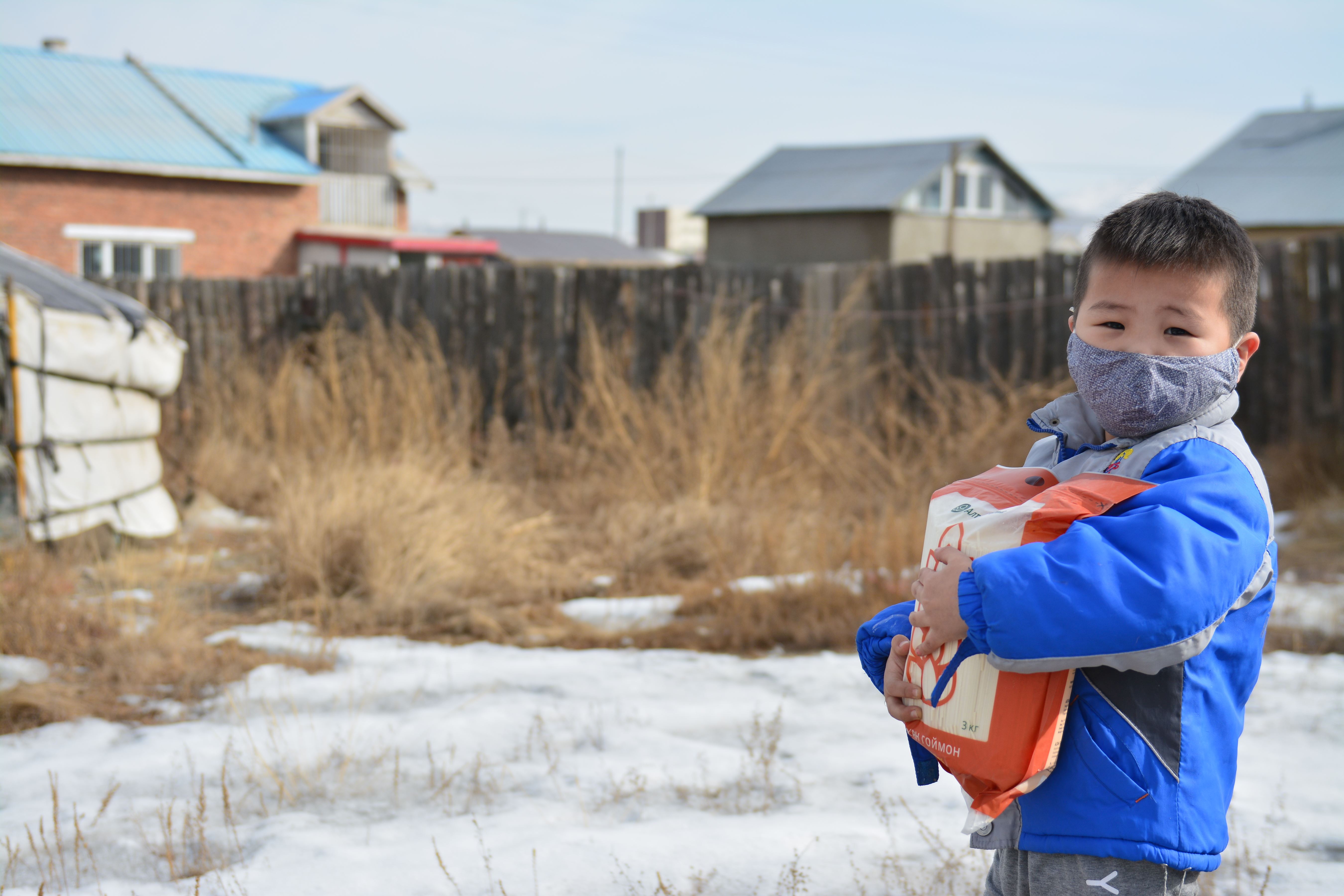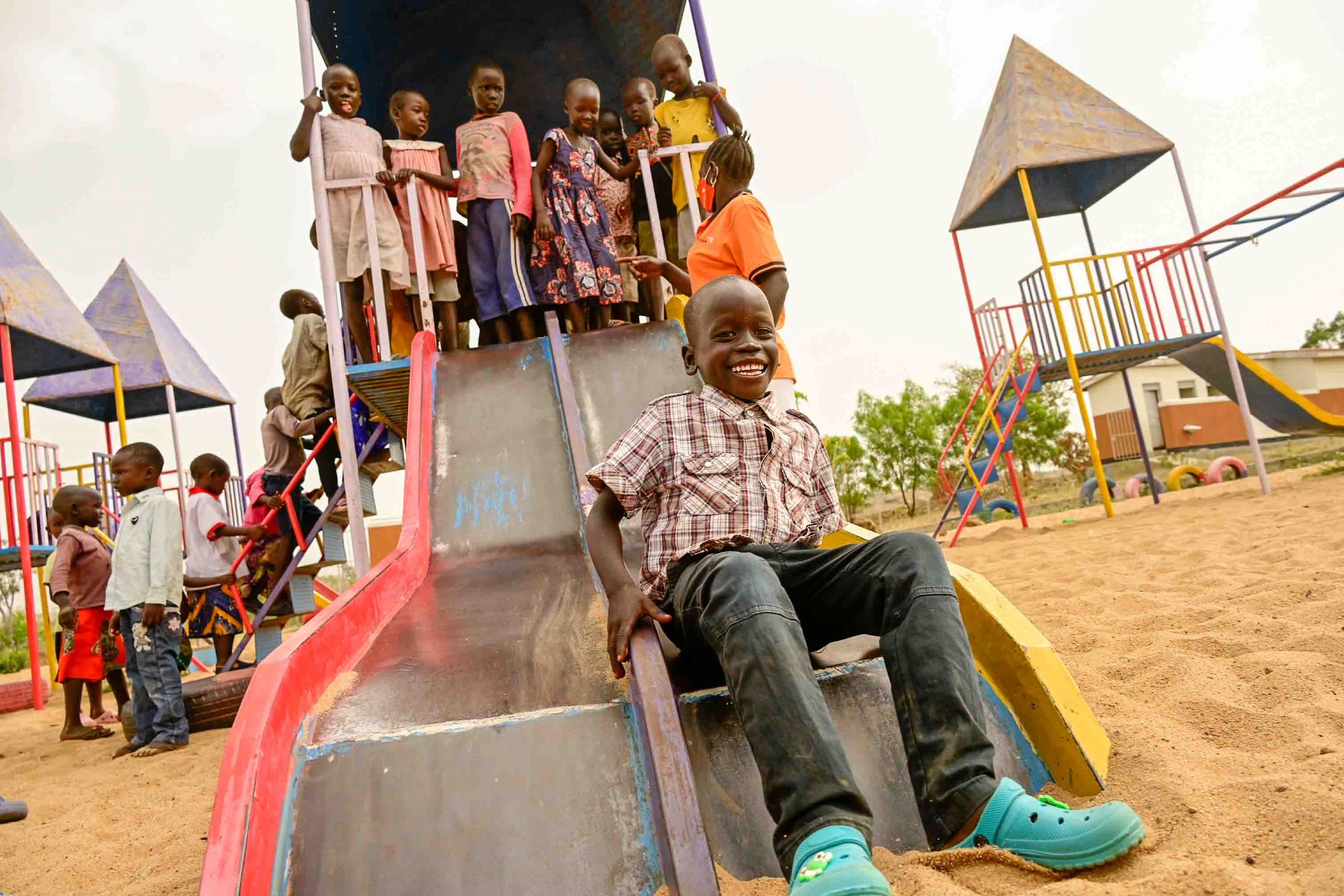
Coronavirus: Plans for a new humanitarian response
How COVID-19 challenges the norms of humanitarian response
As coronavirus grips the world, our experts are examining what it means for the world's poorest communities, what we can do to slow it down and how we can support health workers, communities, families and children.
By Isabel Gomes, World Vision's Global Director of Humanitarian Operations
An unprecedented threat
There have now been more than 375,000 confirmed coronavirus cases and 16,000 deaths across 195 countries, areas or territories globally. This crisis presents an unprecedented challenge for humanitarian response, upending lives, separating families, and raising the risk of gravely impacting our future generation.
Two weeks ago the World Health Organisation characterised the novel COVID-19 virus as a pandemic; today (Wednesday 25 March), the United Nations launches a global humanitarian appeal to urgently increase response, particularly in the world’s most fragile contexts.
World Vision welcomes the launch of the UN’s COVID-19 Global Humanitarian Response Plan. This initiative brings together UN agency plans, and integrates inputs from the Red Cross Movement and international NGOs and networks, including World Vision. Critically, the plan highlights the need for scaling up to respond to the immediate health crisis, but also to the potentially devastating secondary impacts of COVID-19 on access to education, food security, water and sanitation, livelihoods, child protection and increased risk of gender-based violence.
The plan highlights that $1.99bn will be needed to respond globally and emphasises the likelihood of particularly acute impacts in countries with existing humanitarian crises. For these fragile contexts, it is essential that existing humanitarian assistance is protected, and not diverted to the COVID-19 response.
Support our work
You can help provide essentials such as hygiene kits and mental health support
Donate nowThe impact of coronavirus on children
The impact of COVID-19 on children in these contexts could be devastating, and as global response scales up, World Vision calls on the international community to ensure a focus on girls and boys of all ages and intersections of vulnerability and risk. It is too soon to calculate the exact impact on children and there is much we do not know, but we can predict from on our experience with serious viral outbreaks in the past such as Ebola.
Coronavirus does not discriminate. While we know the elderly and persons with underlying medical conditions are at greater risk, children can and will be directly affected as well. Healthcare systems over-burdened with COVID-19 patients are also less able to provide ongoing preventative and curative healthcare services, including for children. During Ebola outbreaks in the Democratic Republic of the Congo, access to healthcare for children with other infectious diseases such as tuberculosis, malaria and diarrheal diseases could be unavailable or delayed, contributing to increased risk of mortality and morbidity. Girls and boys living in fragile contexts with already weak or non-existent health services, such as in Afghanistan, Syria or South Sudan are likely to face life-threatening challenges to their survival as health systems struggle to cope with COVID-19.
We can also anticipate significant secondary impacts of coronavirus on children. In fragile contexts and those previously affected by epidemics, children are often cared for by grandparents – those most at risk of losing their lives to COVID-19, heightening the risk of children becoming unaccompanied or separated. The fear and panic created by the unknowns of the virus and in many places, the challenges to access testing or treatment, coupled with social isolation and separation from or loss of family and loved ones can lead to significant psychosocial distress.
Access to mental health and psychosocial support is, however, one of the biggest gaps in the majority of the world’s humanitarian crisis responses. School closures mean children miss out on education, but school is also one of the safest places to be during the day and for many, their only source for a nutritious meal. Loss of income and livelihood due to closures and movement restrictions limit the protection parents and caregivers can provide to their children, from violence, abuse, neglect and exploitation. The risk of children being pushed into negative coping mechanisms such as informal labour, sexual exploitation or child marriage becomes much greater.

The impact of coronavirus on humanitarian responses
If these impacts on children were not tough enough, COVID-19 also presents unprecedented challenges to the way humanitarians typically respond to an emergency. Government policies prohibiting public gatherings pose specific challenges for distribution of food assistance and other life-saving supplies, as well as the provision of basic services to displaced and conflict-affected populations. Large-scale temporary suspensions of food and cash assistance programmes have already occurred in 10 countries to date. Even temporary stoppages can be life-threatening. Crowded refugee camps and settlements for the internally displaced have an increased risk of high transmission and the least capacity to put in place prevention measures. Travel restrictions limit the ability to send in surge support and additional capacity. Humanitarian access has never been more challenged, and the need to find alternatives to ensure continuity of existing humanitarian response programming and supply chains more urgent.
In the face of these unprecedented challenges, World Vision is calling for the world to prioritise the most vulnerable, especially girls and boys, in the following ways:
- Resource the UN’s COVID-19 Global Humanitarian Response Plan and initiatives to bilaterally and directly support local actors with capacity on the ground
- Build in flexibility including allowance for crisis modifiers to leverage existing resources as much as possible, in line with World Humanitarian Summit and Grand Bargain commitments
- Protect and maintain existing commitments to humanitarian response in fragile contexts, avoiding diversion of resources and adding flexibility to adapt to new operational realities
- Ensure national response plans include all individuals regardless of status, particularly internally displaced, refugees, asylum seekers and undocumented migrants
- Mobilise local resources and capacities for prevention and preparedness, including engagement of faith actors and networks that remain with their communities
- Place the impact on children at the heart of preparedness, prevention and response plans, ensuring to assess the age and gender-specific needs of girls and boys, invest in continuity of child protection systems and services, and support safe means for child participation where possible
- Work together to address humanitarian access constraints with immediacy and consider exceptions to travel and movement restrictions for humanitarian workers
- Urgently identify alternatives to mass suspensions of life-saving humanitarian assistance as part of preparedness planning and find solutions to re-start where these have already occurred. Together with these actions, we can mitigate a catastrophe for children and their families.
World Vision is actively responding to coronavirus in 17 priority countries, including our existing humanitarian responses. We are promoting preventative measures, supporting health systems and workers, and providing holistic, multi-sector support to children with increased vulnerability as a result of COVID-19. In line with our commitments at the World Humanitarian Summit, we are adopting crisis modifiers and flexibility to shift our resources to rapidly respond, with the principle of Do No Harm at the forefront. We are mobilising our frontline staff, local partners, faith leaders and communities.
Now more than ever, we must all stand together in solidarity as a global community and do whatever it takes to protect our most vulnerable citizens now and into the future.
Support our work
Make sure people receive support, food assistance and personal hygiene items
Donate now


